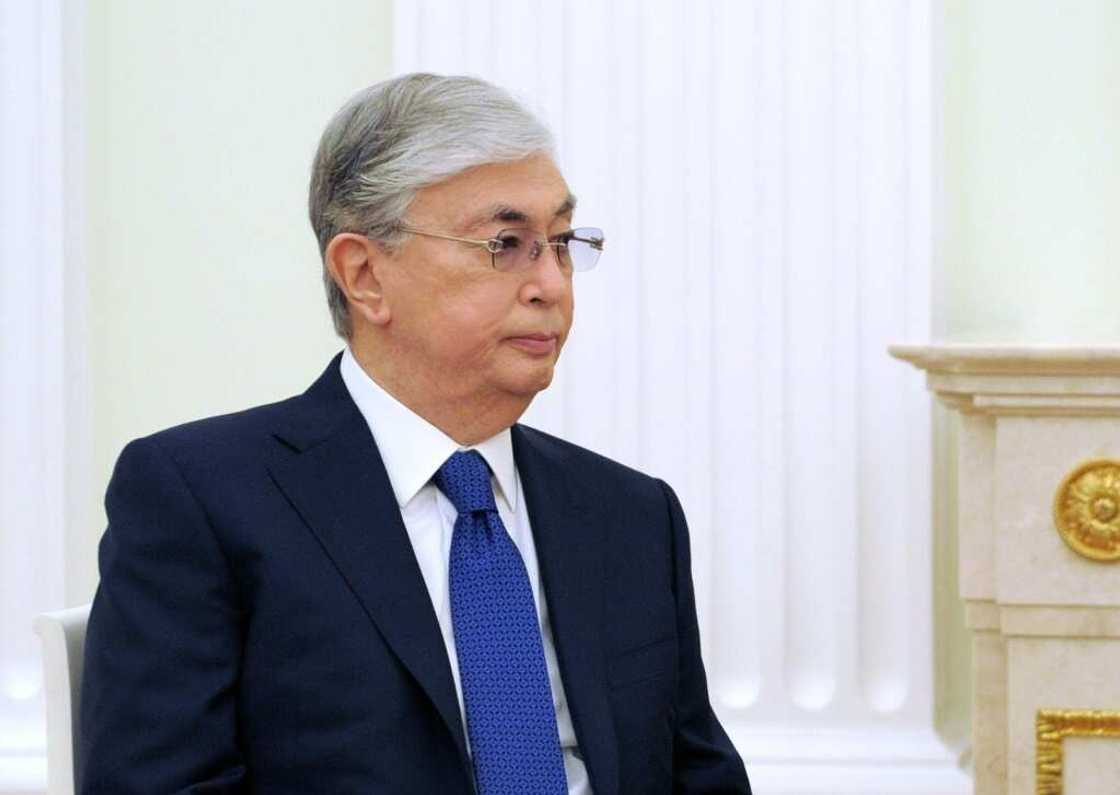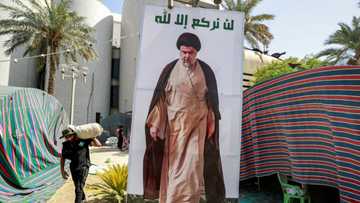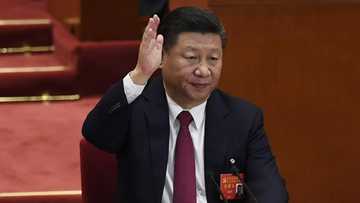Kazakh leader says plans to call snap presidential vote this autumn

Source: AFP
PAY ATTENTION: Click “See First” under the “Following” tab to see Legit.ng News on your Facebook News Feed!
Kazakhstan's President Kassym-Jomart Tokayev said Thursday he plans to call a snap presidential election this autumn and will reduce the presidency to one seven-year term.
In an address to the Central Asian country's parliament, Tokayev also proposed holding snap parliamentary elections in the first half of 2023, after his country underwent a political crisis earlier this year that left more than 200 people dead.
"I propose that we hold early presidential elections in the autumn of 2022," Tokayev said, saying measures were needed to "strengthen our statehood" and "maintain the momentum of reforms".
A presidential vote had been due in Kazakhstan in 2024 and parliamentary elections in 2025.
Tokayev said he would move the parliamentary vote forward after constitutional changes earlier this year set "completely new standards for a political system with fair and open rules of the game".
The term of the presidency would meanwhile be limited to one term of seven years, he said, from the current two five-year terms.
PAY ATTENTION: Join Legit.ng Telegram channel! Never miss important updates!
"For me, the interests of the state are above all. Therefore, I am ready to go to early presidential elections, even despite the reduction of my term in office," Tokayev said.
January's unrest roiled energy-rich Kazakhstan, one of the most stable of the Central Asian countries that gained independence with the 1991 collapse of the Soviet Union.
The bloodshed -- which grew out of peaceful protests over a spike in car fuel prices -- left more than 230 people dead.
It came after career diplomat Tokayev, 69, was hand-picked in 2019 by Nursultan Nazarbayev, who had ruled Kazakhstan for close to three decades, to replace him in the presidency.
Kazakhstan in June voted in favour of changes to the constitution that Tokayev described as a shift from "super-presidential" rule.
Among the most eye-catching changes to the constitution was the absence of special privileges for 82-year-old Nazabayev.
Prior to January's crisis, Tokayev was widely seen as ruling in the shadow of Nazarbayev and his super-rich relatives.
Even after stepping down as president, Nazarbayev retained the constitutional title of "Elbasy", or "Leader of the Nation" -- a role that afforded him influence over policymaking regardless of his formal position.
The new constitution does not acknowledge this status, while another amendment prevents relatives of the president from holding government positions.
Both former and current presidents are allies of neighbouring Russia, and the arrival of troops from a Moscow-led security bloc bolstered Tokayev's control over the situation in January.
However there have been tensions between Russia and Kazakhstan since the launch of Moscow's military campaign in Ukraine, with the Central Asian country seeking to balance ties with the West and ally Moscow.
Source: AFP




